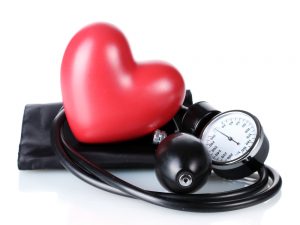Red Wine can Reduce risk of Heart Disease?
Posted by Phil Heler, MD on December 27, 2018Those who drink moderate amounts of alcohol, including red wine, seem to have a lower risk of heart disease.

Christmas is a time when we all over-indulge and not all of us need reminding! A typical Christmas meal with all the trimmings plus alcohol might total somewhere above or below 5,500 calories. However, it isn’t all bad news. If you drink red wine, there may be some benefit to your health.
Ever since the 1960’s there has been a phenomenon known by epidemiologists as the ‘French paradox’. It was called a paradox because even though the French diet is relatively high in saturated fats, as a country it has a relatively low incidence of heart disease. Famously in 1962 Charles De Gaulle said, “how can you govern a country which has two hundred and forty–six varieties of cheese?”. At this time there were preliminary investigations into coronary heart disease (CHD) which appeared to conclude that southern European countries had a lower incidence rate of CHD. Of course, one of the things they all have in common is red wine consumption. A full study specifically on the ‘French Paradox’ was first published in the Lancet in 1992 (Renaud and De Logeril). This pioneering study indicated that alcohol consumption at the level of intake in France (20-30 g per day) appeared to reduce risk of CHD by an astonishing 40%.
Clearly all this depends on cultural context and habits regarding alcohol consumption, these may vary from moderate and regular consumption (typical in France) through to ‘binge drinking’ (common in the UK). In France, alcohol consumption is rather homogeneous throughout the week whereas in Northern Ireland for instance (according to one study), Fridays and Saturdays account for 66% of total alcohol consumption!!
Research Reveals that Red Wine contains Resveratrol
Two Cornell University plant scientists undertook research on the cardiovascular benefits of red wince in 1992. Red wine contains several powerful polyphenols, one of these is resveratrol which belongs to a class of compounds called stilbenes. Resveratrol in red wine comes from the skin of grapes and because red wine is fermented with grape skins longer than white wine, red wine contains more resveratrol. Other foods that contain some resveratrol include peanuts, blueberries and cranberries.
Resveratrol is a fat-soluble compound produced by certain plants in response to stress factors such as UV light, fungal infection or injury. This study at Cornel highlighted the presence of resveratrol (and its benefits) and it was immediately associated with the ‘French Paradox’. Obviously since this time there have been many studies on resveratrol and it has been linked with many health claims from helping to prevent cancer, helping control diabetes, vascular dementia and Alzheimer’s disease.
The Benefits of Resveratrol
Studies on the effect of resveratrol on CHD and its biological effects appear to point to its ability to prevent low density lipoprotein (LDL) oxidation. This is one of the trigger events for developing CHD and it appears resveratrol may confer some level of protection.
One important caveat is that many of the positive studies on resveratrol have come from cultures of cells or laboratory experiments with a range of subjects such as yeast, roundworms, fruit flies or mice. There are not many studies specifically on long term human health effects. However, the least we can say is that red wine’s potential heart-healthy benefits look promising. Those who drink moderate amounts of alcohol, including red wine, seem to have a lower risk of heart disease.


